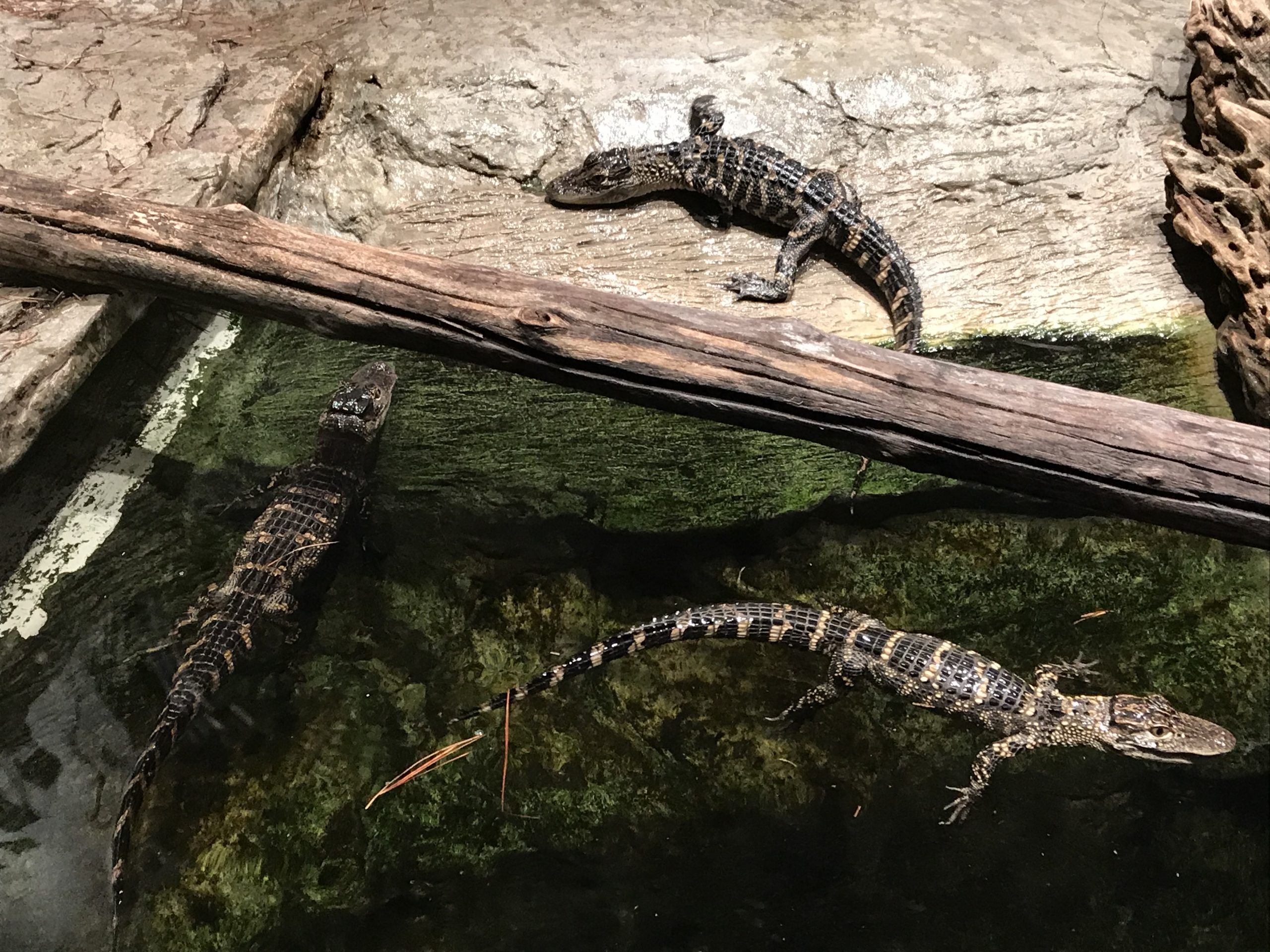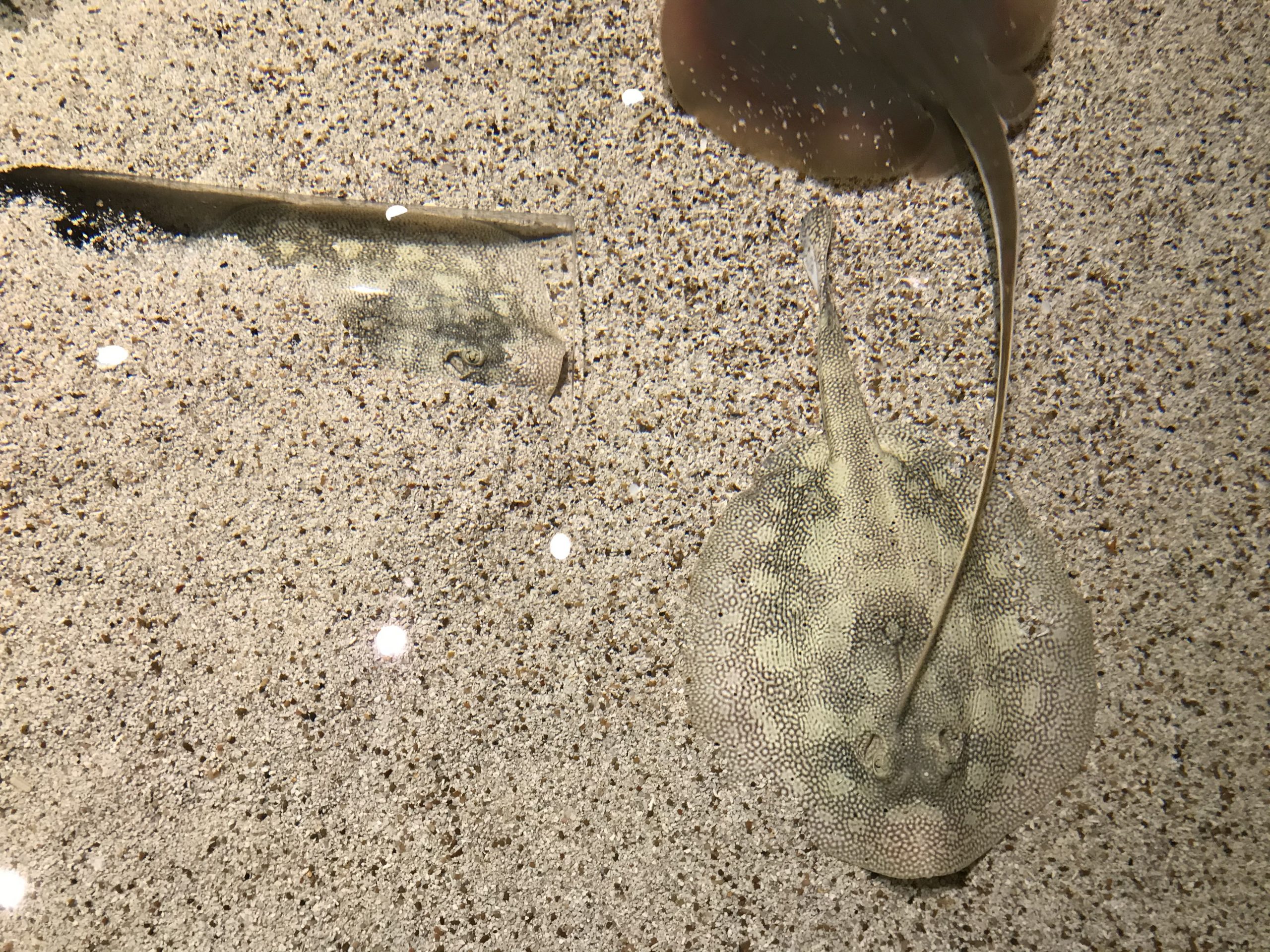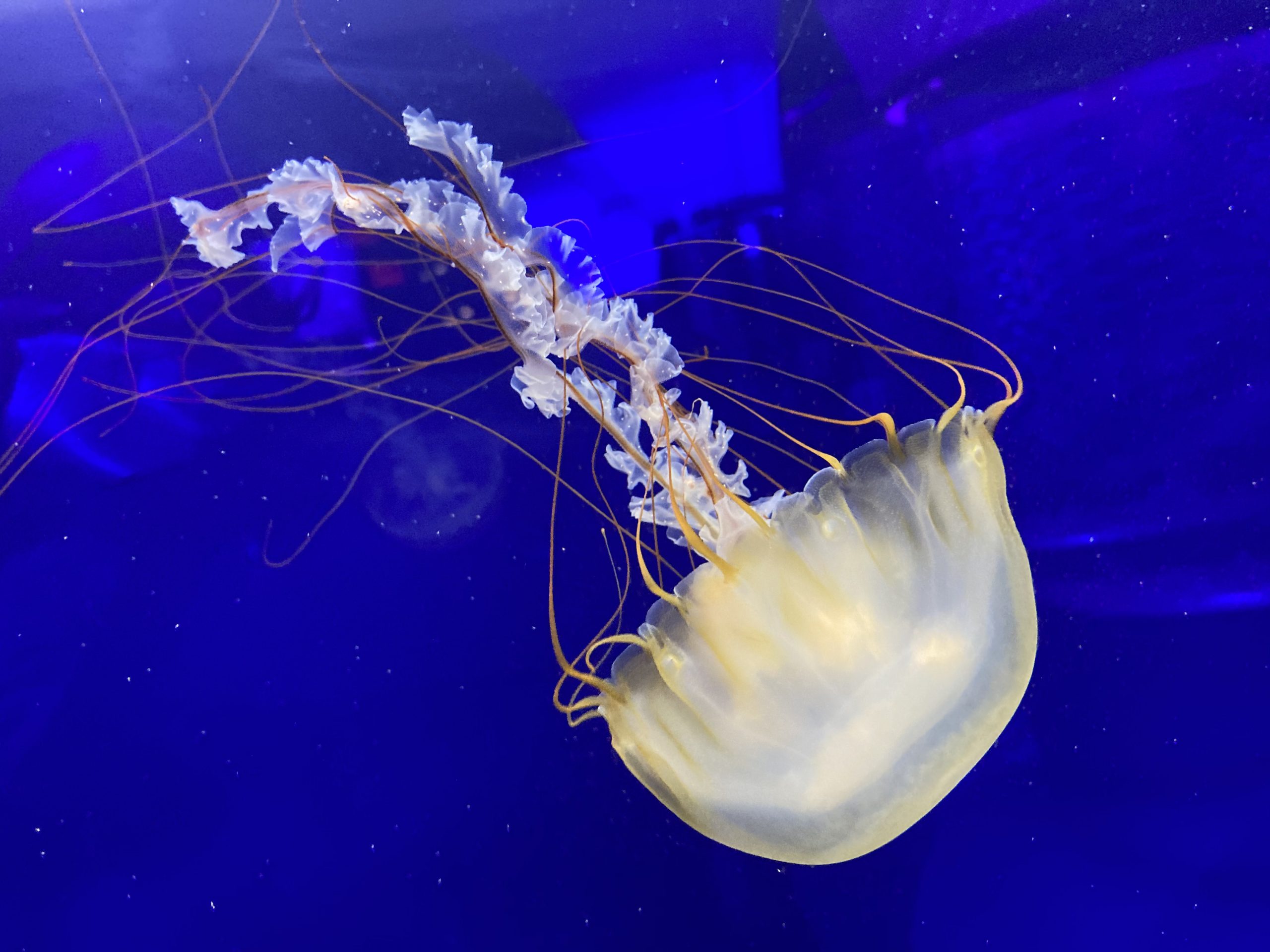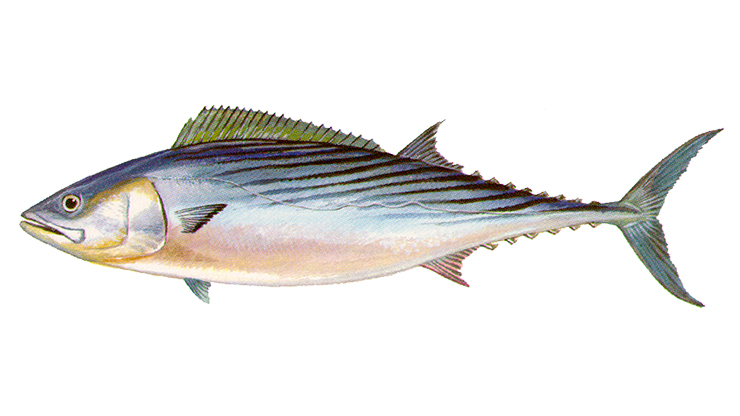
There’s a few new critters to see and a better view of sea jellies at the North Carolina Aquarium at Roanoke Island.
Baby alligators and yellow stingrays recently were relocated to the aquarium and a viewing window has been restored to better watch sea jellies, the aquarium recently announced.
Supporter Spotlight
The Seven Rivers Gallery is home to four new hatchling American alligators from a partner facility in South Carolina, Alligator Adventure, which provided the animals on loan to the aquarium.
Four years ago, four hatchlings, which were recovered by the North Carolina Wildlife Resources Commission after being illegally sold online, spent their early years at the aquarium. As they matured and began to grow too large for the habitat, they were safely transferred to the same South Carolina facility earlier this year.
The new alligators are all responding quickly to training that helps their caretakers keep them safe and healthy, according to the aquarium.
“They are really fast at learning because they are really motivated by food,” said Aquarist Connie Quattlebaum. The baby alligators can be seen actively swimming in the gallery, floating on the surface of the water or basking on rocks.
At the Sea Senses touch pools visitors can meet the newly introduced yellow stingrays while they mingle with Atlantic stingrays and horseshoe crabs.
Supporter Spotlight
The five yellow stingrays have distinctive light coloring accented with spots resembling the sand on the bottom of the pool, which helps them to camouflage.
Like all the rays in the touch pools, the yellow rays have their barbs trimmed regularly, but Aquarist Sheena Jones said the task differs from the Atlantic rays because of the barb’s location near the end of the tail.
“Yellow stingrays have short, blunt tails so they have a little more force and leverage. So you have to be careful,” Jones said, adding that she and the rays have always remained safe during handling.

No longer in the Sea Senses gallery are the cownose stingrays, known for their blunt snouts and sleek skin. The aquarium’s animal experts thought these animals would be better suited in larger habitats and were relocated to the Maritime Aquarium at Norwalk in Connecticut.
In the Delicate Drifters Gallery, a restored viewing window known in aquariums as a kreisel allows visitors a view of Pacific sea nettles that have drifting tentacles and unique coloration. Unlike most of the animals at the aquarium, the sea nettles are not native to North Carolina.
While guests have been able to watch moon jellies and other species through another wall display and three viewing tubes, now that larger kreisel has been restored, the Delicate Drifters Gallery again offers a surround view of these creatures.

The aquarium, along with the Pine Knoll Shores, Fort Fisher and Jennette’s Pier locations, reopened Sept. 14 after being closed since March 17 as part of the statewide effort to reduce the spread of COVID-19. While the aquariums were closed, staff continued to provide for the health and well-being of animals in its care.
In the eight weeks since the aquarium reopened, all guests have been asked to purchase tickets in advance online at ncaquariums.com and to remember that cloth face masks are required inside.
Meanwhile, social distancing markers and hand sanitizer stations can be seen throughout the aquarium.
“These steps help provide the safest possible environment for both our guests and our staff,” said Communications Manager Brian Postelle. “We need our animal caretakers healthy to best provide for the well-being of all of the animals here. And we greatly appreciate the community support.”
To see more about the North Carolina Aquariums, visit ncaquariums.com







